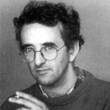The Sum of Our Days: A Memoir
Description
Narrated with warmth, humor, exceptional candor and wisdom, The Sum of Our Days is a portrait of a contemporary family, tied together by the love, strong will, and stubborn determination of a beloved matriarch, the indomitable New York Times bestselling author of The House of the Spirits, Isabel Allende.
"An inspiring and thought-provoking work." –Denver Post
Isabel Allende reconstructs the painful reality of her own life in the wake of the tragic death of her daughter, Paula. Narrated with warmth, humor, exceptional candor, and wisdom, this remarkable memoir is as exuberant and as full of life as its creator. Allende bares her soul while sharing her thoughts on love, marriage, motherhood, spirituality and religion, infidelity, addiction, and memory—and recounts stories of the wildly eccentric, strong-minded, and eclectic tribe she gathers around her and lovingly embraces as a new kind of family.
More Details
9780063000445
Also in this Series
Published Reviews
Booklist Review
In this sequel to her memoir Paula (1995), about the year-long coma suffered by her daughter, Chilean novelist Allende tells of the difficult years following Paula's death. She makes a transformative journey in these pages, from the moving opening chapter, in which the grief-stricken author and her family scatter Paula's ashes in the forest, to the final rewarding coda, where she is able to once again experience contentment and gratitude for the abundance in her life. Framing her story around her family, and directly addressing her daughter throughout, Allende reveals herself in all her roles: feisty marital partner, intrusive mother, dedicated writer, and spiritual seeker. She takes great comfort from her wide circle of support, a loosely connected network she refers to as her tribe, which provides her with the three-ring circus material she needs for her writing. Among the many personal revelations she makes here are her daughter-in-law's discovery that she is gay, which broke up her marriage to Allende's son and launched the author into a laborious matchmaking process to help him remarry, and her own imbibing of a hallucinogenic tea, which subsequently helped awaken her imagination during the writing of her children's books. Surprisingly candid, frequently funny, and highly aware of her own failings, Allende is a person fully engaged in life, and readers will find her eloquent memoir inspirational reading.--Wilkinson, Joanne Copyright 2008 Booklist
Publisher's Weekly Review
In this deeply revealing second memoir, after Paula, novelist Allende (The House of Spirits) utilizes her family and the complex network of their relationships as the linchpin of the narrative. While weaving in her candid opinions on love and marriage, friendship, drug addiction, the writing life and religious fanaticism, Allende continues to work through the grief over her daughter's death. "In these years without you I have learned to manage sadness, making it my ally. Little by little your absence and other losses in my life are turning into a sweet nostalgia." And though Allende's insight is keen, her prose polished and her language hypnotic, it's the stories of her close-knit family that move the memoir forward. "We lived as a tribe, Chilean style; we were almost always together." While much of the story is infused with melancholy, her world is by no means without humor, mirth and wisdom. She celebrates friends' triumphs and exploits their foibles, including the "odyssey of the boobs," without taking herself too seriously. This is a book to savor. (Apr.) (c) Copyright PWxyz, LLC. All rights reserved
Library Journal Review
Allende (The House of the Spirits) has a personal commitment to begin a new book every year on January 8. One year, agonizing at daybreak, she had no first sentence to report to her agent, who then requested the letter that turned into this memoir of family events since the death of Allende's daughter--the topic of her earlier Paula. Allende appropriately describes life as a "disorderly, quick process filled with unforeseen events" and admits that she has trouble following her husband's repeated advice to "keep her nose out" of her extended family's emotionally complicated lives (addiction, divorce, children with three different mothers, and failed medical procedures are just the short list of the problems faced by her "tribe"). Allende's trademark magical realism is ever present as she writes of Paula's spirit throughout this book. She reports that her houseguests smell jasmine and feel furniture moving in Paula's room, and her grandchildren see ghostly visions on the stairs. This high-spirited, emotionally packed book enables readers to get a closer look at the life of a much-loved writer--who even shares her schoolgirl crush on actor Antonio Banderas. Recommended for all literature collections. [Visit the author online at www.isabelallende.com.--Ed.]--Joyce Sparrow, JWB Children's Svcs. Council, Pinellas Park, FL (c) Copyright 2010. Library Journals LLC, a wholly owned subsidiary of Media Source, Inc. No redistribution permitted.
Kirkus Book Review
Loving tribute to an unorthodox family. In Allende's acclaimed memoir Paula (1995), the Chilean-born novelist told the story of her tumultuous life in the form of a letter to her beloved, recently deceased daughter. This follow-up picks up the story where the previous book left off, in the guise of keeping the spirit Paula informed of the goings-on in her noisy, exuberant, sometimes tragic extended family. Studded with incredible, often soap-operatic events, the stories here could be melodramatic or even self-indulgent. Instead, burnished by the author's enormous affection for (almost) every character, the book coalesces into a warm meditation on family and love. After the devastation of Paula's yearlong decline and eventual death, Allende undertook to gather her fractured clan around her in northern California, where she lived with her American husband Willie. She writes of the couple's attempts to save his daughter Jennifer. When the drug-addicted young woman lost custody of her fragile, premature baby girl, they found Sabrina a home with a lesbian couple in a Zen monastery. Jennifer was allowed to visit her daughter, but she grew steadily weaker and vanished not long before Sabrina's first birthday. We also learn of the author's turbulent but loving relationship with her contrarian, hotheaded daughter-in-law, who fractured the family by leaving Allende's son Nico for the woman engaged to Willie's stepson. In the same tell-all spirit, the writer discusses the various heartaches of her steadfast friends, Tabra and Juliette; her successful courtship of the woman she wanted to be Nico's second wife (they are now happily married); her own numerous parenting and marital missteps; and the painful process of getting over her daughter's death. A turbulent life to be both pitied and envied, and a book to be savored and reread. Copyright ©Kirkus Reviews, used with permission.
Booklist Reviews
In this sequel to her memoir Paula (1995), about the year-long coma suffered by her daughter, Chilean novelist Allende tells of the difficult years following Paula's death. She makes a transformative journey in these pages, from the moving opening chapter, in which the grief-stricken author and her family scatter Paula's ashes in the forest, to the final rewarding coda, where she is able to once again experience contentment and gratitude for the abundance in her life. Framing her story around her family, and directly addressing her daughter throughout, Allende reveals herself in all her roles: feisty marital partner, intrusive mother, dedicated writer, and spiritual seeker. She takes great comfort from her wide circle of support, a loosely connected network she refers to as her tribe, which provides her with the "three-ring circus material" she needs for her writing. Among the many personal revelations she makes here are her daughter-in-law's discovery that she is gay, which broke up her marriage to Allende's son and launched the author into a laborious matchmaking process to help him remarry, and her own imbibing of a hallucinogenic tea, which subsequently helped awaken her imagination during the writing of her children's books. Surprisingly candid, frequently funny, and highly aware of her own failings, Allende is a person fully engaged in life, and readers will find her eloquent memoir inspirational reading. Copyright 2008 Booklist Reviews.
Library Journal Reviews
Allende (The House of the Spirits ) has a personal commitment to begin a new book every year on January 8. One year, agonizing at daybreak, she had no first sentence to report to her agent, who then requested the letter that turned into this memoir of family events since the death of Allende's daughter—the topic of her earlier Paula . Allende appropriately describes life as a "disorderly, quick process filled with unforeseen events" and admits that she has trouble following her husband's repeated advice to "keep her nose out" of her extended family's emotionally complicated lives (addiction, divorce, children with three different mothers, and failed medical procedures are just the short list of the problems faced by her "tribe"). Allende's trademark magical realism is ever present as she writes of Paula's spirit throughout this book. She reports that her houseguests smell jasmine and feel furniture moving in Paula's room, and her grandchildren see ghostly visions on the stairs. This high-spirited, emotionally packed book enables readers to get a closer look at the life of a much-loved writer—who even shares her schoolgirl crush on actor Antonio Banderas. Recommended for all literature collections. [Visit the author online at www.isabelallende.com .—Ed.]—Joyce Sparrow, JWB Children's Svcs. Council, Pinellas Park, FL
[Page 84]. Copyright 2008 Reed Business Information.Publishers Weekly Reviews
In this deeply revealing second memoir, after Paula , novelist Allende (The House of Spirits ) utilizes her family and the complex network of their relationships as the linchpin of the narrative. While weaving in her candid opinions on love and marriage, friendship, drug addiction, the writing life and religious fanaticism, Allende continues to work through the grief over her daughter's death. "In these years without you I have learned to manage sadness, making it my ally. Little by little your absence and other losses in my life are turning into a sweet nostalgia." And though Allende's insight is keen, her prose polished and her language hypnotic, it's the stories of her close-knit family that move the memoir forward. "We lived as a tribe, Chilean style; we were almost always together." While much of the story is infused with melancholy, her world is by no means without humor, mirth and wisdom. She celebrates friends' triumphs and exploits their foibles, including the "odyssey of the boobs," without taking herself too seriously. This is a book to savor. (Apr.)
[Page 146]. Copyright 2008 Reed Business Information.
































